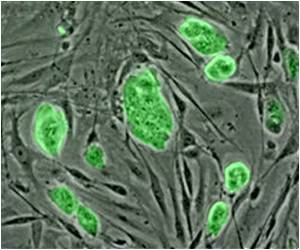An effective strategy that could prevent the human immune system from rejecting the grafts derived from human embryonic stem cell has been developed by scientists.

The study by a collaboration that included scientists from China, was enabled by the development of "humanized" laboratory mice that contained a functional human immune system capable of mounting a vigorous immune rejection of foreign cells derived from human embryonic stem cells.
Because human embryonic stem cells are different from our own body's cells, or "allogenic," a normally functioning human immune system will attack these foreign cells. One way to reduce the body's "allogenic immune response" is to suppress the immune system with immunosuppressant drugs.
The biologists took immune deficient laboratory mice and grafted into their bodies human fetal thymus tissues and hematopoietic stem cells derived from fetal liver of the same human donor. "That reconstituted in these mice a normally functioning human immune system that effectively rejects cells derived human embryonic stem cells," Yang Xu, who headed the team of researchers, said.
With these "humanized" mouse models, the biologists then tested a variety of immune suppressing molecules alone or in combination and discovered one combination that worked perfectly to protect cells derived from human embryonic stem cells from immune rejection.
That combination was CTLA4-lg, an FDA-approved drug for treating rheumatoid arthritis that suppresses T-cells responsible for immune rejection, and a protein called PD-L1 known to be important for inducing immune tolerance in tumors.
Advertisement
The study was published in the journal Cell Stem Cell.
Advertisement












